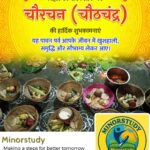7 Powerful Insights About Spirituality That Will Transform Your Life
Spirituality, a concept that transcends religion and culture, has been a central part of human life since ancient times. It represents a journey within oneself, seeking inner peace, purpose, and connection with the universe. In India and across the world, spirituality has influenced philosophy, culture, rituals, and daily living. This article explores the history, facts, timeline, significance, FAQs, impact on daily life, and societal importance of spirituality in a human-friendly way.
History of Spirituality
The history of spirituality is as old as human civilization itself:
Ancient Civilization: Early humans sought answers to life, death, and the universe through meditation, rituals, and symbolic practices.
Vedic Period (1500–500 BCE): In India, the Vedas emphasized the importance of self-realization, meditation, and harmony with nature. Spiritual practices included yajnas (sacrifices), mantra chanting, and meditation.
Buddhism and Jainism (6th Century BCE): Spirituality took a more personal and ethical dimension, focusing on self-discipline, non-violence, and inner awakening.
Medieval Period: Mystics, saints, and philosophers like Kabir, Guru Nanak, and Ramakrishna Paramahamsa spread spirituality emphasizing love, compassion, and devotion.
Modern Era: Spirituality today combines ancient wisdom with psychology, mindfulness, and global well-being practices.
Interesting Facts About Spirituality
Universal Concept: Spirituality exists in all cultures, transcending religious boundaries.
Mind-Body Connection: Practices like meditation, yoga, and mindfulness improve mental and physical health.
Inner Peace: Spirituality encourages individuals to look inward, fostering resilience, calmness, and self-awareness.
Ethical Living: Promotes values like compassion, honesty, and empathy, improving societal harmony.
Scientific Interest: Modern neuroscience confirms that meditation and mindfulness alter brain activity positively, reducing stress and anxiety.
Personal Growth: Spirituality inspires self-reflection, goal alignment, and life purpose.
Global Influence: Spiritual teachings like Buddhism, Sufism, and Vedanta have influenced cultures worldwide.
Timeline of Spirituality
Prehistoric Times: Rituals and symbols indicate early humans sought spiritual experiences.
1500–500 BCE (Vedic Period): Development of mantras, meditation, and philosophical thought in India.
6th Century BCE: Founding of Buddhism and Jainism, emphasizing ethical spirituality.
Medieval Era: Saints and mystics spread spiritual wisdom across India and the world.
18th–19th Century: Integration of spirituality into literature, art, and social reform.
20th–21st Century: Global adoption of mindfulness, meditation, and yoga as tools for holistic well-being.
Significance of Spirituality
Spirituality plays a crucial role in personal and societal life:
Inner Well-being: Helps individuals manage stress, anxiety, and emotional challenges.
Moral Compass: Provides a framework for ethical and compassionate living.
Social Harmony: Encourages unity, tolerance, and understanding among diverse communities.
Life Purpose: Assists in discovering meaning, motivation, and fulfillment.
Cultural Preservation: Spirituality preserves ancient wisdom, traditions, and rituals, enriching society.
Health Benefits: Practices like yoga and meditation promote physical, mental, and emotional health.
FAQs About Spirituality
Q1: Is spirituality the same as religion?
A1: No, spirituality is about personal growth, inner peace, and connection, while religion often involves structured beliefs and practices.
Q2: Can spirituality improve mental health?
A2: Yes, studies show that spiritual practices reduce stress, anxiety, and depression, improving overall well-being.
Q3: What are common spiritual practices?
A3: Meditation, prayer, mindfulness, yoga, self-reflection, and service to others are popular spiritual practices.
Q4: How can one start a spiritual journey?
A4: Begin with self-awareness, meditation, reading spiritual texts, and practicing gratitude.
Q5: Does spirituality require faith in a higher power?
A5: Not necessarily. Spirituality can be secular or religious, focusing on inner growth and ethical living.
Impact of Spirituality on Daily Life
Spirituality influences everyday life in many meaningful ways:
Mindfulness and Focus: Enhances attention, decision-making, and presence in daily tasks.
Stress Management: Reduces anxiety, fear, and emotional turmoil through meditation and reflection.
Relationships: Encourages empathy, patience, and forgiveness, improving social bonds.
Life Decisions: Helps individuals make values-based choices aligned with long-term well-being.
Work-Life Balance: Promotes calmness, clarity, and efficiency, supporting professional and personal life.
Observance and Wishing
Spirituality is celebrated and integrated in daily life and society:
Festivals and Rituals: Diwali, Buddha Purnima, and Navratri include spiritual practices like prayer, meditation, and reflection.
Daily Habits: Individuals practice gratitude, mindfulness, and self-reflection to nurture spirituality.
Wishing: Spiritual messages often convey hope, inner peace, and moral encouragement, inspiring others to lead meaningful lives.
Community Programs: Meditation workshops, yoga sessions, and spiritual retreats foster collective well-being and awareness.
Conclusion: Why Spirituality Matters
Spirituality is a powerful guide for personal growth, ethical living, and social harmony. It teaches humans to look inward, connect with their true selves, and live mindfully. By embracing spirituality, individuals can achieve mental clarity, emotional balance, and a sense of purpose, while societies benefit from tolerance, unity, and ethical conduct.
Spirituality is not just a practice—it is a way of life. It empowers people to face challenges with courage, nurture positive relationships, and contribute meaningfully to society. In a fast-paced, modern world, spirituality offers the timeless wisdom of inner peace, resilience, and holistic well-being, reminding us that true happiness and fulfillment come from within.
Quick Recap: 7 Powerful Insights About Spirituality
Spirituality is a personal journey beyond religion.
Ancient civilizations practiced spirituality through rituals and meditation.
It improves mental, emotional, and physical health.
Provides a moral and ethical framework for life.
Enhances social harmony and understanding.
Encourages mindfulness, gratitude, and self-awareness.
Inspires purpose, inner peace, and holistic well-being.








